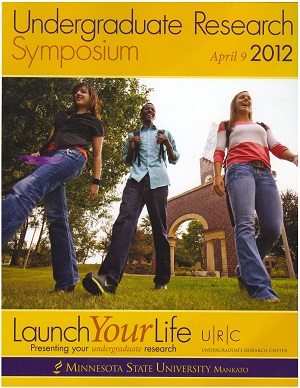Importance of Family Centered Care for Undergraduate Nursing Students
Location
CSU 253
Start Date
9-4-2012 10:00 AM
End Date
9-4-2012 11:00 AM
Student's Major
School of Nursing
Student's College
Allied Health and Nursing
Mentor's Name
Stacey VanGelderen
Mentor's Department
School of Nursing
Mentor's College
Allied Health and Nursing
Second Mentor's Name
Norma Krumwiede
Second Mentor's Department
School of Nursing
Second Mentor's College
Allied Health and Nursing
Description
The purpose of this descriptive qualitative research study is to understand the perception of undergraduate nursing students on the importance of providing family centered care. Achieved data from a prior nursing simulation research study will be used to answer two research questions:
1. How important is it for the nurse to engage with families?
2. How important is it to include the family in nursing education for students?
The findings will inform nurse educators if the current method of teaching impacts the students’ opinions on the importance of family centered care. Understanding the student’s perception will assist in developing new methods of teaching a family approach in nursing practice. Knowing what students think of family centered care assists educators to better understand if simulation changes the students’ view of the family approach in nursing practice.
Family centered care is beneficial for students when gathering useful information to better serve patients. Nurse educators believe that case-based nursing simulations are an effective teaching-learning strategy that promotes the learning for students on how to apply a family approach in their nursing practice. After experiencing two different simulations; one on family centered nursing practice and the other a lack of the family approach, students will be able to take a legitimate position on whether or not family centered care is important. The study would enrich both the students in coming to an informed decision of the importance of family and also aid educators in finding innovative methods of teaching family centered care.
Importance of Family Centered Care for Undergraduate Nursing Students
CSU 253
The purpose of this descriptive qualitative research study is to understand the perception of undergraduate nursing students on the importance of providing family centered care. Achieved data from a prior nursing simulation research study will be used to answer two research questions:
1. How important is it for the nurse to engage with families?
2. How important is it to include the family in nursing education for students?
The findings will inform nurse educators if the current method of teaching impacts the students’ opinions on the importance of family centered care. Understanding the student’s perception will assist in developing new methods of teaching a family approach in nursing practice. Knowing what students think of family centered care assists educators to better understand if simulation changes the students’ view of the family approach in nursing practice.
Family centered care is beneficial for students when gathering useful information to better serve patients. Nurse educators believe that case-based nursing simulations are an effective teaching-learning strategy that promotes the learning for students on how to apply a family approach in their nursing practice. After experiencing two different simulations; one on family centered nursing practice and the other a lack of the family approach, students will be able to take a legitimate position on whether or not family centered care is important. The study would enrich both the students in coming to an informed decision of the importance of family and also aid educators in finding innovative methods of teaching family centered care.
Recommended Citation
Khandid, Shamso. "Importance of Family Centered Care for Undergraduate Nursing Students." Undergraduate Research Symposium, Mankato, MN, April 9, 2012.
https://cornerstone.lib.mnsu.edu/urs/2012/oral-session-05/2




